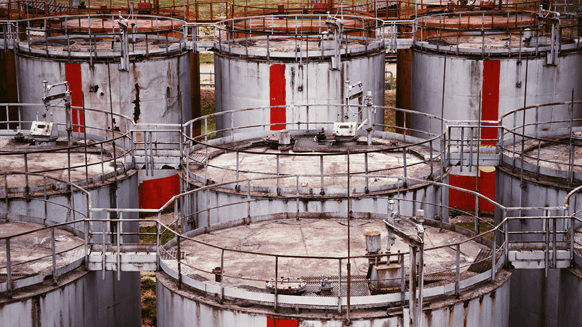The US Department of Energy (DOE) has awarded contracts for 3.2 million barrels of locally produced crude worth more than $230.34 million in another purchase to replenish the Strategic Petroleum Reserve (SPR) after the war-induced releases.
These contracts correspond to the invitation announced last month, when the DOE awarded contracts for three million barrels.
Macquarie Commodities Trading US LLC took the top bid in the latest purchase at 1.5 million barrels, followed by Shell Trading Co. and Sunoco Partners Marketing & Terminals LP with 600 million barrels each. Atlantic Trading & Marketing Inc. will supply 500 million barrels.
These are scheduled for delivery in September and will be injected into the Big Hill SPR storage site in Jefferson County, Texas, the DOE said in a news release on Friday. The same storage must receive the three million barrels whose contracts were awarded in June, with a delivery date in August.
“The 3.2 million barrels are being bought at an average price of about $71.98 per barrel, lower than the average of about $95 per barrel for which SPR crude was sold in 2022, ensuring a good deal for taxpayers,” the department said. Contracts awarded last month had an average price of about $73 a barrel.
The DOE plans to issue another solicitation for SPR purchases this week.
The US wants to bring the SPR to its potential level had it not been for the withdrawals to maintain prices that have soared after the Russian invasion of Ukraine in February 2022. In an interview at the Global Energy Summit of Columbia on April 12, Energy Secretary Jennifer Granholm estimated that the replenishment volume exceeds 160 million barrels.
“Today’s announcement advances the President’s replenishment strategy following his historic release of the SPR to address the significant global supply disruption caused by Putin’s war in Ukraine,” the DOE said.
President Joe Biden announced in March 2022 a reduction in the SPR of one million barrels per day over the next six months, 180 million barrels in total.
A Treasury Department analysis showed that SPR releases and coordinated releases with International Energy Agency (IEA) partner countries have reduced gasoline prices by between 17 and 42 cents, the Treasury said in a press release on July 26, 2022.
International crude benchmark West Texas Intermediate (WTI) fell gradually after holding steady above $100 a barrel in March 2022, a month after the conflict began, until July 2022, data showed from the US Energy Information Administration (EIA). WTI prices last year peaked in June at a 12-year high of $114.84. WTI settled at $76.44 at the end of the year.
Global benchmark Brent also remained above $100 a barrel from March 2022 to August 2022 before easing to $80.92 by the end of the year, according to EIA data . Brent prices last year also peaked in June at an eight-year high of $122.71.
Sales by order to the Congress
The DOE has three SPR replenishment strategies: outright purchases funded with proceeds from emergency sales, exchange refunds, and “legislative solutions that prevent unnecessary sales unrelated to supply disruptions.”
So far, the agency has secured the rollback of 140 million barrels of sales mandated by Parliament for 2024-27.
In March, the DOE awarded SPR sales for its full-year obligation with Congress for 2023, amounting to 26 million barrels.
“This will be the last sale ordered by Congress until FY26 [fiscal year 2026]” he said in a press release on March 9. “Congress accepted a DOE proposal that canceled 140 million barrels in congressionally mandated sales that took place between FY24 and 27.
“This action strategically keeps SPR volume at ~$74 a barrel by avoiding unnecessary selling.”
Low register
In the third week of June, according to the EIA’s latest update, the SPR, required by the Energy Conservation and Policy Act to be used only during severe supply disruptions, fell to its lowest level since August 1983. It stood at 348,617 million barrels as of June 23.
In the second quarter, the SPR posted net withdrawals of 280,000 barrels per day, according to the DOE’s short-term outlook released on June 6.
But the DOE said in Friday’s announcement, “The SPR remains the largest emergency crude supply in the world.”
To contact the author, please email jov.onsat@rigzone.com


